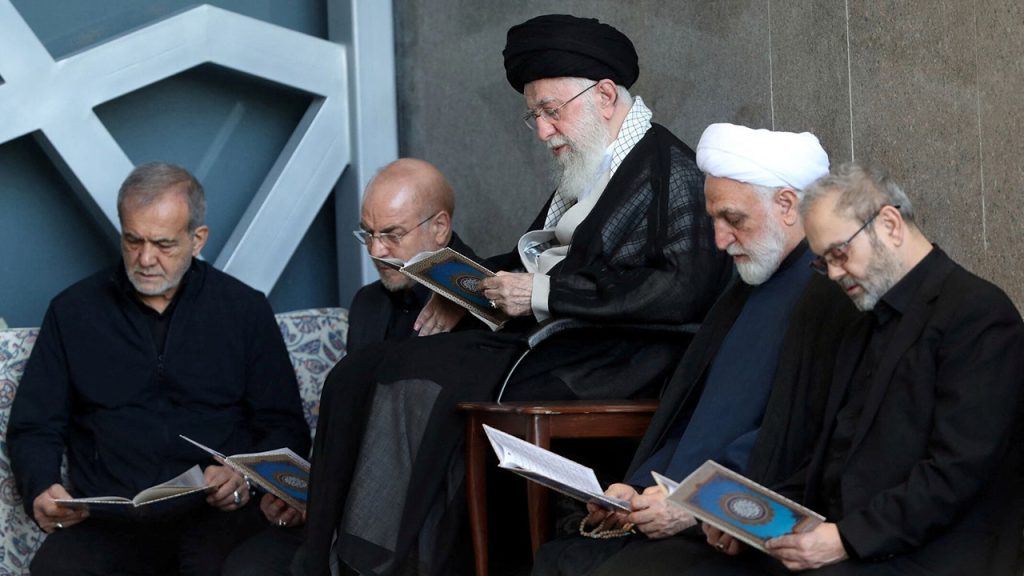Iran’s Supreme Leader Ayatollah Ali Khamenei recently gave a rare sermon during Friday prayers in Tehran, where he declared Iran’s ballistic missile attack on Israel to be “legal and legitimate.” He emphasized that the resistance in the region, including groups like Hezbollah, will not back down even in the face of the killing of its leaders. Khamenei mentioned the recent assassination of Hezbollah leader Hassan Nasrallah and asserted that Iran will continue to carry out its duty in going after Israel without delay or haste. This comes in response to Israel’s perceived crimes, with Khamenei stating that the missile attack was the minimum punishment deserved.
Following the Iranian missile attack on Israel, which saw nearly 200 missiles fired, the Israel Defense Forces announced the killing of Hezbollah’s Communications Unit commander Mohammad Rashid Sakafi in an airstrike in Beirut, Lebanon. Sakafi had been responsible for developing communication capabilities within Hezbollah since 2000. National Security Adviser Jake Sullivan commented on the situation, noting that the Iranian missile attack was ultimately defeated and ineffective. The U.S. military coordinated with the IDF to repel the strikes, with U.S. naval destroyers joining Israeli Air Defense units in shooting down inbound missiles.
The U.S. response to the Iranian missile attack on Israel involved President Biden and Vice President Harris monitoring the situation from the White House Situation Room with their national security team. Sullivan described the event as a significant escalation by Iran, highlighting the importance of the joint effort with Israel in ensuring that no casualties occurred during the attack. Moving forward, the focus will be on securing American interests and promoting stability in the region. The Iranian aggression has raised concerns about the potential for further conflict and the need for continued vigilance.
Khamenei’s remarks and Iran’s actions have heightened tensions in the region, particularly between Iran and Israel. Despite the defeat of the missile attack, the threat of further aggression looms, with Khamenei making clear that Iran will not back down in its pursuit of punishing Israel for its perceived crimes. The involvement of Hezbollah and other regional actors adds complexity to the situation, with the potential for escalation and retaliation on multiple fronts. The international community will be closely monitoring developments to ensure that conflict is contained and efforts to promote stability are successful.
The conflict between Iran and Israel underscores the ongoing challenges in the Middle East, where regional powers vie for influence and seek to assert their dominance. The Iranian regime’s determination to confront Israel, as demonstrated by the recent missile attack, highlights the entrenched animosity between the two countries. The role of external actors, such as the U.S., in supporting Israel and maintaining stability in the region will be crucial in preventing further escalation and mitigating the impact of Iranian aggression. Diplomatic efforts to de-escalate tensions and address the root causes of conflict will be essential in finding a lasting resolution to the challenges facing the Middle East.
As the situation between Iran and Israel continues to unfold, the international community must remain vigilant and proactive in addressing the underlying issues that fuel conflict and instability in the region. The recent events serve as a reminder of the volatile nature of Middle Eastern politics and the need for constant engagement to prevent escalation and promote peaceful coexistence. Efforts to de-escalate tensions, foster dialogue, and address grievances on all sides will be essential to achieving lasting peace and stability in the region. It is imperative that all parties involved prioritize diplomacy and peaceful means of resolving disputes to avoid further violence and bloodshed.


